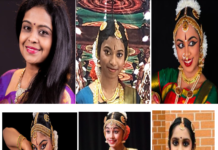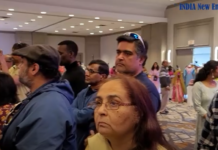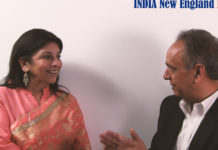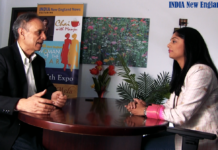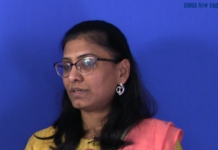BOSTON–Dr. Samata Sharma has always been drawn to the power of personal narrative and storytelling as a therapeutic tool for both individual and interpersonal connection, healing, and growth. The decision to pursue her residency in psychiatry after medical school therefore was an easy one for Dr. Sharma.
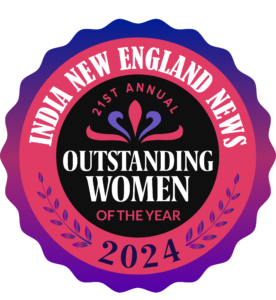 “My journey towards addiction medicine, in retrospect, seems just as preordained,” says Dr. Sharma, who initially completed a fellowship in consult-liaison. “I soon realized that the vast majority of my clinical cases involved patients struggling with the severe medical and psychiatric sequalae that accompany chronic addictions. Working within a specific healthcare system revealed the inherent challenges faced by these patients including the insidious cycle of stigma and trauma perpetuating both the presence of their disease as well as the prevention of its treatment. This set me on a course to obtain board certification in addiction medicine, and to seek opportunities where I could combine clinical practice with more macroscopic level policy change.”
“My journey towards addiction medicine, in retrospect, seems just as preordained,” says Dr. Sharma, who initially completed a fellowship in consult-liaison. “I soon realized that the vast majority of my clinical cases involved patients struggling with the severe medical and psychiatric sequalae that accompany chronic addictions. Working within a specific healthcare system revealed the inherent challenges faced by these patients including the insidious cycle of stigma and trauma perpetuating both the presence of their disease as well as the prevention of its treatment. This set me on a course to obtain board certification in addiction medicine, and to seek opportunities where I could combine clinical practice with more macroscopic level policy change.”
Currently, Dr. Sharma serves as the medical director of the Brigham Bridge Clinic: a low threshold, trauma informed addiction treatment approach and as the CMO of VOAMASS, a Massachusetts affiliate chapter of the nationwide VOA, which is a 125-year-old non-profit that provides primary and behavioral health care, housing, and vocational training to traditionally medically underserved populations.
Her clinical and research interests lie at the intersection of addictions, trauma and resilience. In 2018, Dr. Sharma was awarded seed funding to create an international initiative to strengthen the infrastructure of trauma care delivery for survivors of acid violence, with an emphasis on linking inpatient psychiatric services to ongoing, outpatient psychosocial rehabilitation. The protocol was created in conjunction with Acid Survivor Trust International and the Colombian Ministry of Health and Women’s Affairs.
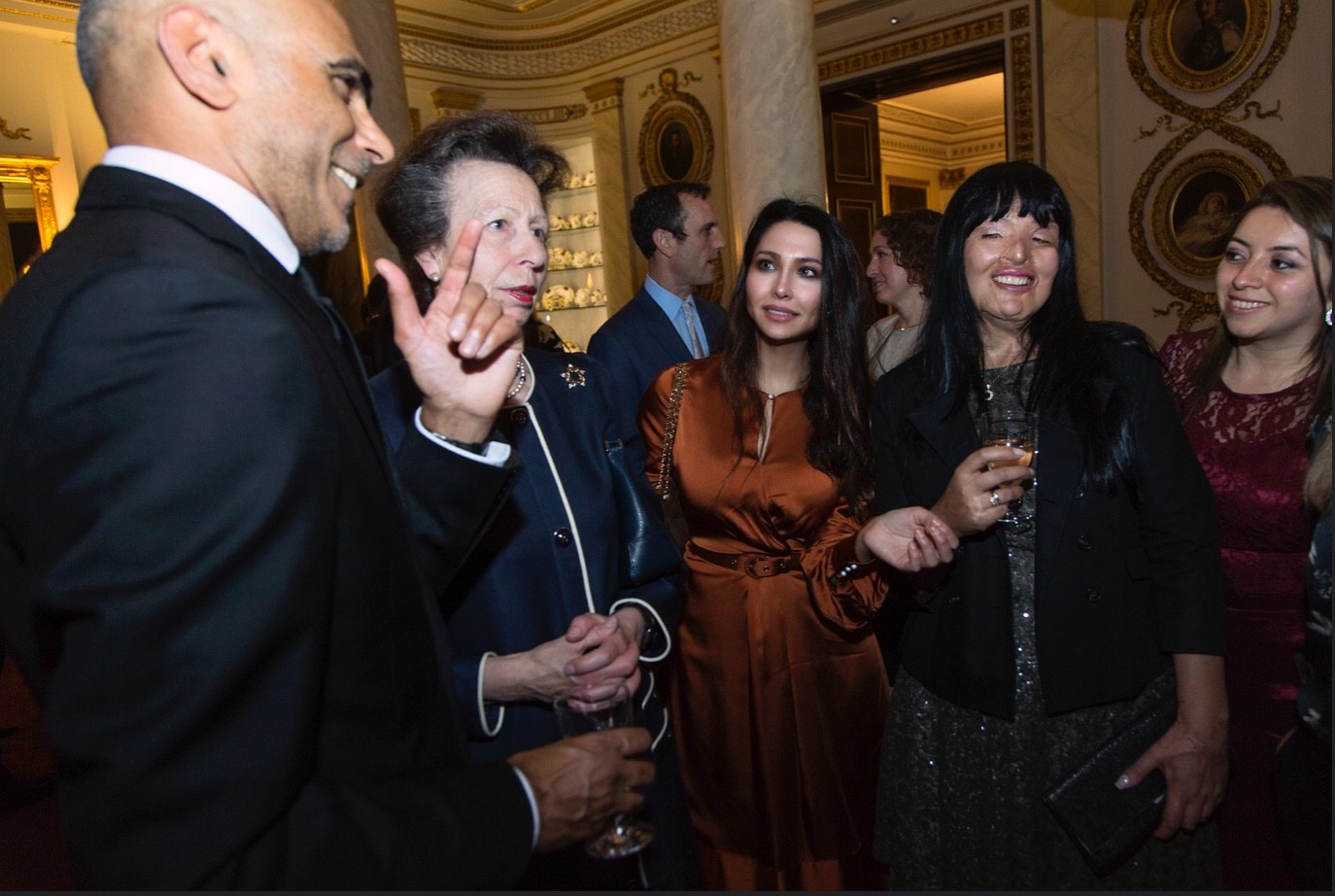
For the next stages of the project, Dr. Sharma is developing a survivor led trauma informed curriculum for first responders as well as a protocol for using cross-cultural expressive arts to facilitate traumatic processing, increase resilience and lead to post-traumatic growth. The expressive arts protocol was initiated with the support of a Radcliffe Institute Exploratory Seminar award and is in its final stages of development prior to publication.
“My greatest joys lie in spending time with my loved ones, creating something of value at my work, exploring new ideas and places, and chasing around a very large, very naughty, training-immune puppy,” says Dr. Sharma.
Dr. Sharma will be honored as the Outstanding Women of the Year 2024 by INDIA New England News on April 26, 2024 at its 21st Annual Awards gala at the Burlington Marriott Hotel in Burlington, MA. The event will be attended by about 400 business and community leaders, philanthropists, and professionals.
To register for the gala, please click here.
Here is a Q/A with Dr. Sharma:
INDIA New England News: Please tell our readers about your work and what you enjoy most about it?
Dr. Samata Sharma: I’m a psychiatrist who specializes in addiction medicine and trauma treatment. There are many parts of my work I enjoy: everything from understanding the underlying neurobiology of the brain, to working with a multidisciplinary team in an environment that facilitates clinical innovation. But what I love most about my work is that I get to partner with patients on their journey to recovery which is one of the hardest, but most empowering journeys of their lives. Addiction medicine is one of the most hopeful fields of medicine: we have incredibly effective treatments that can change the course of someone’s life and help them reclaim not just physical and mental health but also a sense of dignity, pride and resilience.
INE: If you’re engaged with any charity or non-profit, please tell us why this organization and what do you do for them?
SS: I have worked with a few non-profit organizations (including the Women’s Lunch Place and Acid Survivor Trust International) to facilitate programs that empower survivors of interpersonal gender violence to tell their stories through the use of immersive theatre, poetry and personal narrative that highlights their strength and resilience.
I think one of our greatest strengths as humans lies in our ability to imagine and create: to see the world as it is, envision what can be, and through ingenuity turn that vision into reality. It’s this ability that allows us to problem solve, to tell stories, to rebuild after trauma. There is a healing power in using art as a vehicle to create, process and then share our personal narrative, the story of our life’s trajectory before and after trauma, with our communities. It creates a sense of both individual and collective inspiration and optimism which are building blocks of cognitive resilience.
I am currently working on creating an evidence-based therapy protocol that would use a full immersive theatre performance to frame a trauma survivor’s story as a “hero’s journey” and create measurable improvements in cognitive resilience and post-traumatic growth. I also serve on the board of “Stronger than Stigma” an incredible non-profit created by a young woman named Gabrielle Magid who turned her own struggles with anxiety into a movement that uses humor, creativity and immersive experiences to dispel mental health stigma and encourage open communication in communities.
INE: What are your hobbies and interests?
SS: I studied opera in through college, medical school and for a year prior to my residency. I am still involved in this through the New England Conservatory where I am able to continue studying and singing opera while also acting as an invited guest lecturer to give talks on how music impacts brain development. It allows me to combine both work and play! I also love tennis and horseback riding, spending quality time with friends and family, adventure traveling and learning everything I can about canine development and dog training. I am training my 3-year-old German shepherd to be a therapy and service dog. However, given I am constantly at her service and she demonstrates no interest in doing any work, we can safely assume I did not miss my calling as a canine trainer!
INE: In what way do you feel you have most positively influenced or served the local community and your company/organization and professional field?
SS: In both my roles as medical director of the Brigham Bridge Clinic (formally named the Eliza Dushku-Palandjian and Peter Palandjian Bridge Clinic) and as chief medical officer of VOAMASS, I have had the privilege of working with incredibly gifted and inspirational colleagues who are much smarter than I am. Collaborating with them has allowed me to participate in creating innovative treatment programs that lower traditional barriers to care in order to allow more people to access addiction treatment. As 90% of people who need treatment for addiction do not actually receive it, due in no small part to the trauma and sigma associated with the diagnosis, and the number of fatalities associated with addictions continues to climb, we are direly in need of finding new ways to provide treatment and dispel stigma.
We know that disproportionately black and LatinX populations tend to have more severe disease presentations and less access to treatment across the compendium of medical illnesses. However, in South Asian communities as well, mental health and addictions remains a topic that is often not discussed and people are left too often to silently suffer. My hope is that by creating a trauma-informed, culturally diverse treatment environment we will be able to engage and keep more people in treatment and by highlighting stories of recovery, strength, and resilience empower them to embark on their treatment journey with well-earned pride rather than unwarranted shame.
INE: What is your rare talent?
SS: Seeing the strength and talent in others that they may not always see for themselves and (I hope) inspiring them to pursue it.
INE: Your favorite books? For someone who majored in English Literature, this is a tough question!
SS: I would say three of the ones I find myself still returning back to read include: Man’s Search for Meaning (Viktor Frankl), The God of Small Things (Arundhati Roy) and This Explains Everything (John Brockman). The subtitle of the last book is “Deep, Beautiful and Elegant Theories of How the World Works” and this is what all three books also have in common. Though one is a memoir, one fiction and one a collection of essays, they all, through their own voice and genre, raise (and also strive to answer) both mundane and profound questions in vivid and memorable ways.
INE: Your favorite quotes?
SS: “I beg you to have patience with everything unresolved in your heart and to try to love the questions themselves as if they were locked rooms or books written in a very foreign language. Don’t search for the answers, which could not be given to you now, because you would not be able to live them. And the point is to live everything. Live the questions now. Perhaps then, someday far in the future, you will gradually, without even noticing it, live your way into the answer.” -Rainer Maria Rilke from Letters to a Young Poet
Who inspires you the most?
SS: My mother: she had an arranged marriage at a very young age, left the only home she had ever known, put herself through college and graduate school, and forged her own path forward without ever looking back She puts her whole heart into everything she does, whether professionally or personally, views setbacks as opportunities for growth and change, has never complained or spoken negatively about any challenge that life throws at her, is fearless when faced with adversity, and always maintains an outlook that is both grounded and optimistic. She has taught me to always seek how I can contribute something meaningful in every relationship I form, to lift others up, advocate for those who can’t advocate for themselves, to compete only with myself, and to face challenges with courage and conviction. She also taught me to talk less and listen more…but that remains a work in progress!

INE: Your core value you try to live by?
SS: Remain curious about the world, protect both the people and principles that matter most to you, do anything you choose to do with both passion and integrity.
INE: If you get a chance to meet, who is the one person you would like to meet and why?
SS: Kamala Harris (assuming this pertains to any one person in the present rather than any one person through the course of history). While I understand that political views and beliefs can be very polarizing, especially in these times, our vice-president’s trajectory is one characterized by many firsts that supersede and bridge multiple disparities. I would welcome an opportunity to hear first hand her story, how her upbringing and background influenced her drive to lead and serve our country, the challenges and successes that she encountered on her particular path, her vision and hope for our future, and on a more quotidian level, the everyday things that spark her joy and curiosity.






